Tim Buckley born February 14th 1947 died June 29th 1975
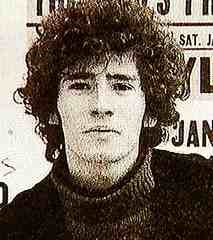
Death can be a bit of a distraction to the career development of a rock musician. It often causes a lull in the output of product and the media are less likely to produce an up-to-date quote. Nevertheless, most artists appear to cope quite well with this distraction and in some cases careers can blossom as a direct result of death.
As consumers, we don't mourn the passing of a human being, merely feel the disappointment in case we don't hear any more new material by a great artist. However, death can be a publicist's dream and can give opportunities to introduce product to a new market.
What should we, as greedy consumers, remember about Tim Buckley?
"My dad left home when I was about six months old and I only met him when I was eight, for a total of nine days. Two months later he died. The people who knew him, they apparently have magic memories of him, but it's been a claustrophobic thing all my life."1 (Jeff Buckley, Tim's son by his first marriage).
"He lived with Janie in Venice, California, right near the beach. I lived with Jennifer, on the same street. During the sunsplashed afternoons, we swam in the ocean, riding waves, like the seals. By night, we listened to music, played our own songs and partied until dawn with our friends. We, of course, thought those days would last forever. They were our endless summers."2 (Lee Underwood, Tim's brilliant guitarist).
"All we are saying is give smack a chance."8 (Tim Buckley, introducing a song in 1968)
"During the sixties, Tim explored psychedelic drugs. During the seventies, he turned to booze. During his last years he gained a degree of control. After a gig in Dallas, he partied too much. He drunk. He snorted heroin. Ironically his system could not absorb the overload, precisely because it was clean. He died at home"2 (Lee Underwood)
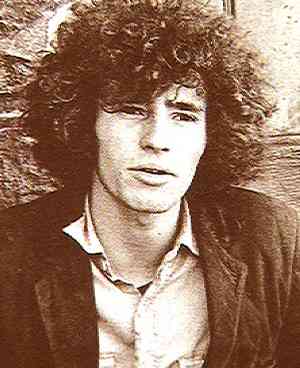
Putting cynicism aside, the lifestyles of our heroes is their own business. What matters to the listener is the music. Forget the judgements on his lifestyle; if you want to know about Tim Buckley, listen to the music.
Between 1966 and 1974, Tim Buckley released nine albums. In the nineties, four further albums have been released.
If you want to know about Tim Buckley, listen to the music. Listen to the nine albums. They are made in a variety of styles and are impossible to describe. The style of the albums is not important. What you have to know about Tim Buckley is his voice. You will never have heard any voice like it. His voice was unique. Ranging from falsetto to bass, his ability to extract empathetic emotion in the listener is unsurpassed. He described it himself like this in a song: "Oblivion carries me on his shoulder. Beyond the suns I speak and circuits shiver."3
Listen and shiver with Tim!
"Nothing in rock, folk-rock or anything else prepares you for a Tim Buckley album, and it's funny to hear his work described as blues, modified rock'n'roll and raga rock when, in fact, there is no name yet for the places he and his voice can go."4
Tim Buckley's albums are impossible to describe....but here goes!
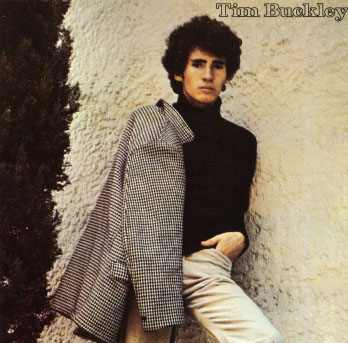
"Most of the songs are high school songs."5 This is an interesting album, but the genre is quite specific. Singer songwriter sings mystical songs of love.

"It was very adolescent. I took sides. I said the establishment was wrong. O.K. it's wrong, but I didn't have an answer."5 The music is more elaborate than previously, and on songs like "I Never Asked To Be Your Mountain", "Once I Was" and "Morning Glory", the arrangements and voice combine to give a unique song. Good stuff, but rooted in "folk-rock-protest." But, hey! This was 1967.

"The trick of writing is to make it sound like it's all happening for the first time. It took a long time to write that album, and then to teach the people in the band, so it really was a labour of love, the way it should be. I really loved doing that album."5 For many people, this is the classic Tim Buckley album. Fluid sounds, apparent improvisation, folk music in a jazz style and a voice that's guaranteed to generate an emotional response from the careful listener. Each of the six tracks is great; "Gypsy Woman" is frenetic, the others are quieter and very nearly perfect.

"Albums of such gentleness, beauty and profound sadness are impossible to write about. Each cut is a hymn to a number of different shades and depths of mood."6 This is similar in mood to "Happy/Sad" and very nearly as good. "Chase The Blues Away" and "I Must Have Been Blind" are particularly evocative. As with "Happy/Sad", there is one song ("The Train") which is in a different style; there is less structure and unusual guitar work from Lee Underwood.
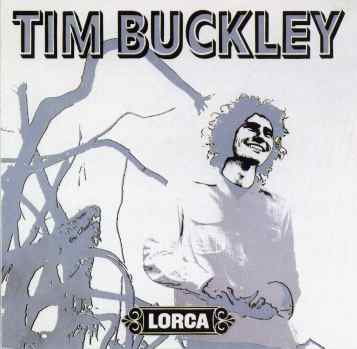
"I recorded "Blue Afternoon", "Lorca" and parts of "Starsailor" in the same month. I was hot"5 There is one standout track, "Drifting", which always transports me to a simpler world: "Late last night, as I dreamed in dizzy sunlight, I thought I heard your bare feet on the stairs." Side one is more experimental and free form; the title track, in particular, is excellent. However, most people that I know cannot listen to it and beg me to play something melodic. (Most of my friends have bad taste!)
Read a full review I wrote of this album.
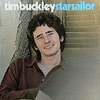
"I was as close to Coltrane as anyone has come."7 The songs sound free form, but for the careful listener there is structure; the songs still sound improvised, but there is a much more urgent feel. Tim's voice is stunning in it's range, imagination and sensuality. You will either love this album desperately ("the second best album of all time" - me) or hate it with venom (everyone else I know!). Here some great bits from this album:
Monterey/Song To the Siren/Starsailor/Down By The Borderline
Read a full review I wrote on this masterpiece.
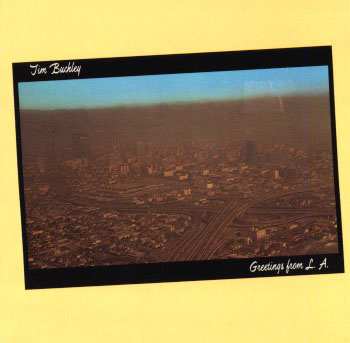
"I took a year off, 'cause I'd been going strong since 1966 and I really needed a rest."5 He claimed that neither Jim Morrison nor Mick Jagger could really sing about sex; he could do it much better. Of course he was right. "It's full out blues-type barrelhouse rock"5 and it gave Tim another musical setting to wrench emotions from the listener.
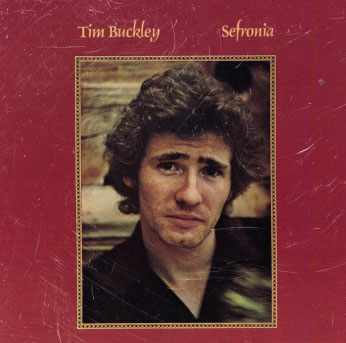
This album is definitely more mainstream than any other. It may be a good start for those new to Tim Buckley because the structures of the song are instantly recognisable. Tim was particularly proud of the title song which is the least accessible thing here.

The title track opens the album and is one of his most outstanding performances. The full range of his voice is immediately on display. However, the rest of the album is largely disappointing; the sound is "funky" but most of the songs are uninspiring.
So how has death helped the career of Tim Buckley? For yonks and yonks Tim Buckley remained unknown or forgotten. In recent years there has been more interest and a plethora of releases (live, works in progress etc), all of interest but nothing essential. The truly ironic fact is that the death of Tim's son, Jeff, has probably generated more interest in Tim Buckley's work than all the word-of-mouth stuff of the last twenty five years.
1 Jeff Buckley in "MOJO"
2 Lee Underwood's sleevenotes to "Dream Letter"
3 "Starsailor"
4 Lillian Roxon "Rock Encyclopaedia"
5 Tim Buckley in "Zigzag"
6 Dick Lawson in "Friends"
7 Warner Brothers press handout.
8 "Live At The Troubadour"
URL: http://www3.mistral.co.uk/mmacve/tim.html